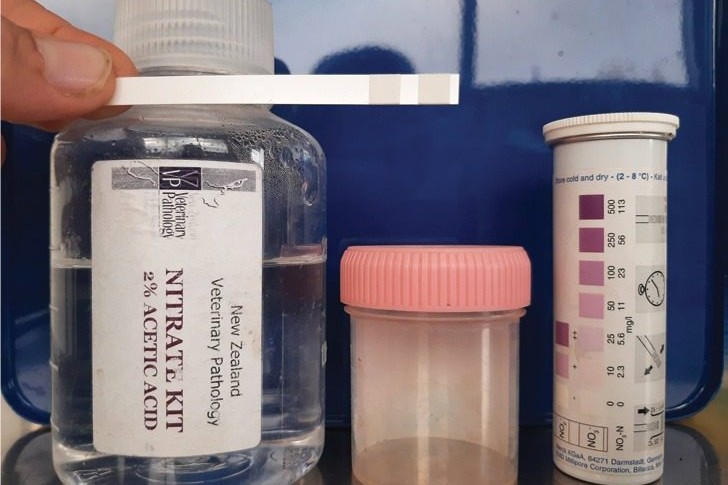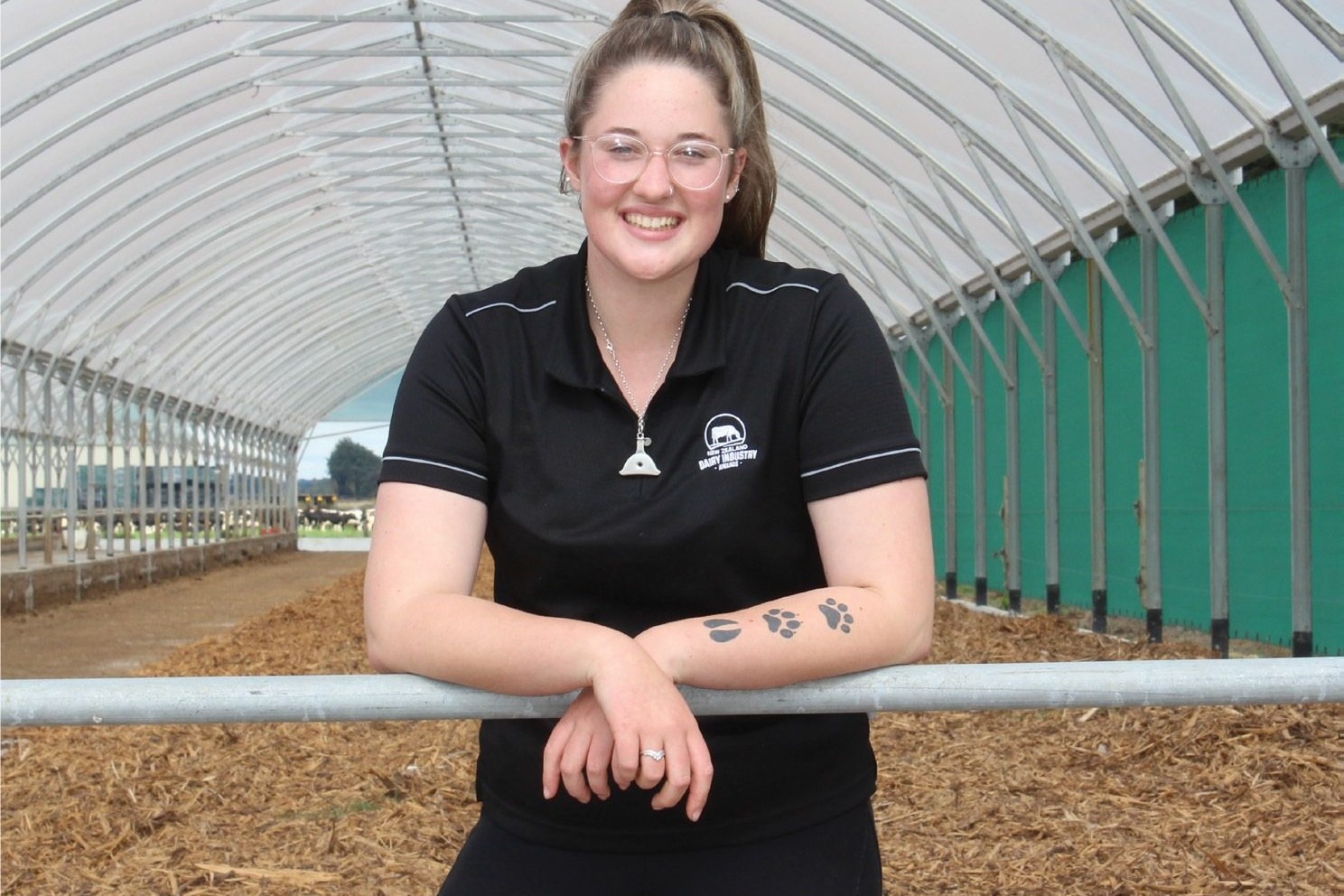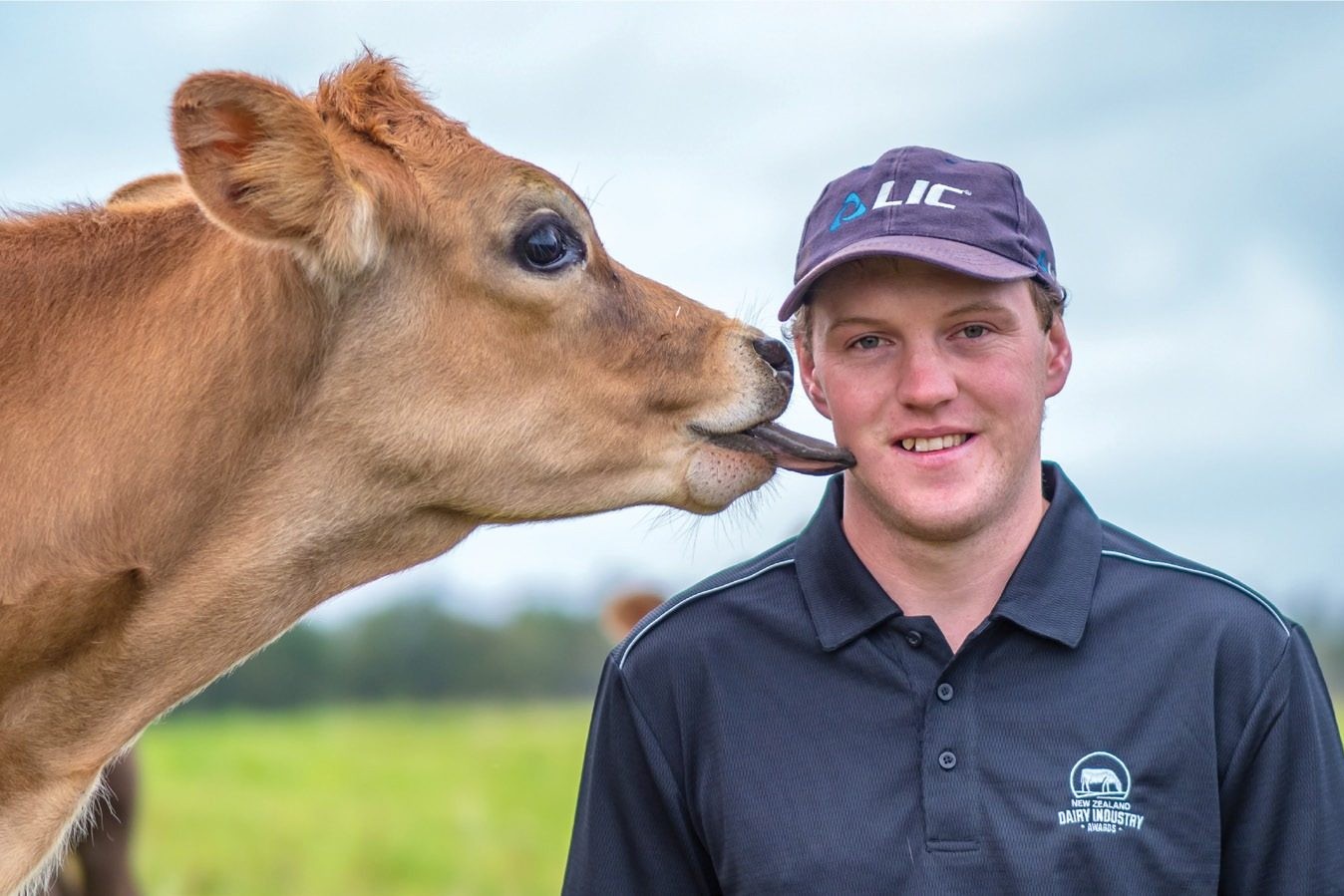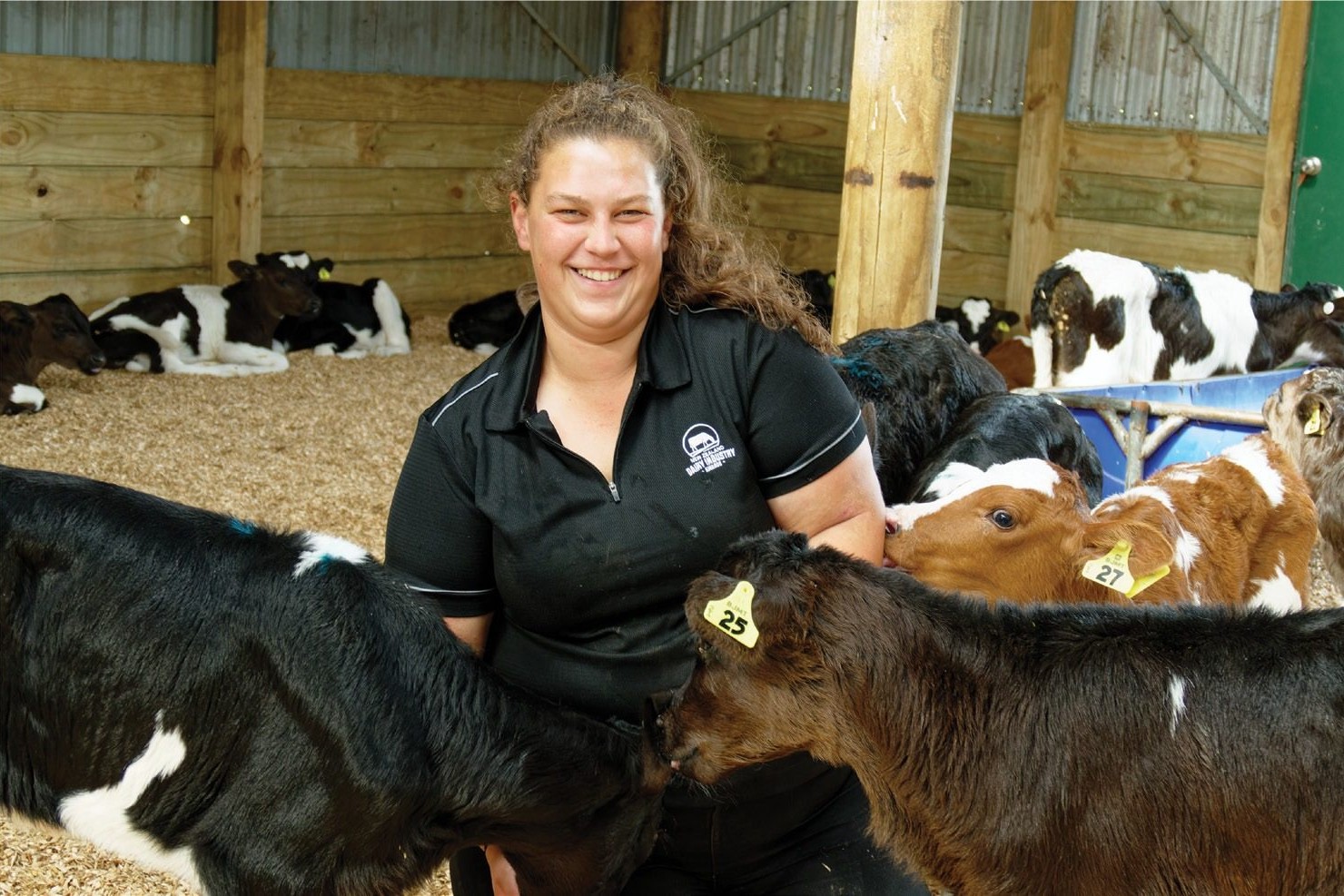Words by Anne Hardie
Rachael Lind has turned one of Pamu Farm’s poorest-performing dairy operations into its top farm in two seasons, so it is little wonder she has won the WC/TOS Dairy Manager of the Year.
For a woman who wants to drive the “wahine waka” to lead more women into management roles in the dairy industry, she is shining the light.
After leaving the family farm on Arapawa Island, it began with a holiday job on a dairy farm where she fell in love with cows. Since then she has spent time as an artificial insemination (AI) technician and herd manager of herds between 400 and 1500 cows before putting her hand up for a farm manager role. Today, she manages Pamu’s 460ha Basset Dairy Farm on Cape Foulwind which peak milks 1060 cows.
However, it took a bit of persuasion and encouragement from her husband, Murray, to put her hand up for the job three years ago and that’s one of the reasons she wants to encourage other women into management roles.
“There are a lot of women out there who just need a bit of encouragement and confidence to step up into management roles.”
On all Pamu dairy farms, there are just two women managers and she says that is because there aren’t enough women seeking those positions.
“I know there are a lot of women with the potential to manage dairy farms, but you need a really good team behind you. And I am blessed to have a team behind me who are really supportive and engaged in what I do. You have to get out there and show them what your goals are to get them engaged.
“You spend a lot of time with the people you work with – more time with your team of staff than your own family, so we’re very much a family unit already. To share the success makes those not-so-glamorous days better.”
It was that attitude toward staff engagement in every aspect of the business from pasture management to feed management plus health and safety that won her the employee engagement merit award. At Bassetts, she has four full-time staff and one staff member on fixed-term contract for the busy calving period.
Staff engagement is a crucial part of her management, as is getting the basics right from feeding stock well to pasture management.
Proactive approach
“It’s the attention to detail and being proactive rather than reactive. We can’t farm for the average season anymore. We have to look at more ways to farm now, like with the intensive winter grazing. We have to be smarter and it needs to be socially and environmentally sustainable. We have to look after our land – that’s what we stand the four feet of our animals on. And that’s why I believe being open and transparent is so important.”
That is crucial for a Pamu farm that is very much in the public eye and Rachael says they want to be proud of what they do when they invite the community onto the farm. She says it is up to the industry to show the public it can be both sustainable and responsible. The more it can showcase those attributes, the more dairying will be accepted, she says.
Managing a corporate dairy farm under public scrutiny has been a huge learning curve around the cost of production and lifting the farm’s earnings before interest and taxes (EBIT).
“Cost of production is one of the most important financial figures; you can produce a lot of milk but if it costs you a lot of money to do that, then it may not be financially viable to do that.
“You want to produce high-quality products in the most financially viable and environmentally sustainable way that you can, while taking into account the health and safety and wellbeing of your staff and animals.”
Last season, the farm produced its second-highest production since it was converted to dairying 18 years ago. This season, it is on target for higher production of 410,000kg milksolids with a lower cost of production and a higher EBIT.
Farming at Cape Foulwind doesn’t come without challenges either, as the name suggests. Winds straight off the Tasman Sea are hurled across the farm, drying out the soils when they aren’t drenched from the 2m annual rainfall.
Rachael has been growing Raphno as a summer crop and Swedes for winter to help through the Cape’s climate. The aim is to reduce the total cropping area from 9% to 7% next season and reduce that further in the coming seasons.
Rachael admits she is lucky to have a “fantastic family support network” to help out with the children when she is working in a challenging management role. It includes her dedicated mother-in-law, Robyn, who regularly takes Ayla, 11, and Brayden, 4, to kindergarten, dancing, hockey and different events when Rachael and Murray aren’t available.
“I couldn’t do this job without the support of our family.”
PGG Wrightson – Livestock and Real Estate Most Promising Entrant – Robyn Mare
STIHL Shop – Greymouth and Richmond Employee Engagement Award – Rachael Lind
Cuffs Chartered Accountant and Business Advisors Leadership Award – Rachael Lind
SealesWinslow Feed Management Award – Rachael Lind
DeLaval Livestock Management Award – Rachael Lind
Fonterra Dairy Management Award – Marlene Bourke
NZDIA Power Play Award – Shaun Rhodes
Westpac Personal Planning and Financial Management Award – Marlene Bourke





